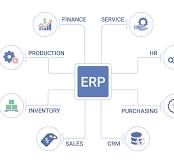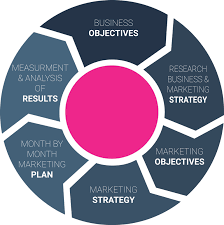ERP Software Development: Streamlining Business Operations
Enterprise Resource Planning (ERP) software has revolutionised the way businesses operate by integrating various functions and processes into a single system. ERP software development plays a crucial role in creating tailored solutions that meet the specific needs of organisations across industries.
The Importance of ERP Software
ERP software serves as a centralised hub that connects different departments within an organisation, such as finance, human resources, inventory management, and customer relationship management. By consolidating data and automating processes, ERP systems enable businesses to streamline operations, improve efficiency, and make informed decisions based on real-time information.
Customised ERP Solutions
Every business is unique, with its own set of requirements and challenges. This is where custom ERP software development comes into play. Experienced developers work closely with clients to understand their specific needs and develop bespoke solutions that align with their business goals.
The Development Process
ERP software development involves several key stages, including requirements gathering, system design, implementation, testing, and deployment. Skilled developers utilise cutting-edge technologies to create scalable and flexible ERP solutions that can adapt to the evolving needs of businesses.
Benefits of ERP Software
The benefits of implementing ERP software are numerous. From improved productivity and operational efficiency to enhanced decision-making capabilities and better customer service, ERP systems empower organisations to thrive in today’s competitive landscape.
Future Trends in ERP Development
As technology continues to advance rapidly, the future of ERP software development looks promising. Trends such as cloud-based solutions, artificial intelligence integration, Internet of Things (IoT) connectivity, and mobile accessibility are shaping the next generation of ERP systems.
Conclusion
In conclusion, ERP software development plays a vital role in helping businesses streamline their operations and achieve sustainable growth. By investing in customised ERP solutions tailored to their unique needs, organisations can stay ahead of the curve and drive success in today’s dynamic business environment.
Top 5 Tips for Successful ERP Software Development and Implementation
- Understand the specific requirements of the business before starting ERP software development.
- Choose a reliable ERP software development team with experience in developing similar solutions.
- Ensure effective communication between stakeholders and developers throughout the development process.
- Regularly test and validate the ERP software to identify and fix any issues early on.
- Provide adequate training and support to users to ensure successful implementation and adoption of the ERP system.
Understand the specific requirements of the business before starting ERP software development.
To ensure a successful ERP software development project, it is crucial to thoroughly understand the specific requirements of the business before commencing the development process. By conducting a detailed analysis of the organisation’s needs, challenges, and goals, developers can tailor the ERP solution to address these specific requirements effectively. This initial step not only ensures that the software aligns with the business processes but also minimises potential issues and maximises the system’s efficiency and effectiveness in streamlining operations.
Choose a reliable ERP software development team with experience in developing similar solutions.
When embarking on ERP software development, it is crucial to select a dependable team with a proven track record in creating similar solutions. Opting for an experienced ERP software development team ensures that they possess the necessary expertise and insights to understand your specific requirements and deliver a tailored solution that aligns with your business objectives. Their familiarity with the intricacies of developing ERP systems can significantly enhance the efficiency and effectiveness of the project, ultimately leading to a successful implementation that meets your organisation’s needs.
Ensure effective communication between stakeholders and developers throughout the development process.
Effective communication between stakeholders and developers is paramount in the successful development of ERP software. Clear and continuous communication ensures that all parties are aligned on project goals, requirements, and expectations. By maintaining open dialogue throughout the development process, stakeholders can provide valuable insights and feedback, while developers can address any concerns promptly. This collaborative approach fosters a shared understanding of the project scope and helps to deliver a tailored ERP solution that meets the needs of the business effectively.
Regularly test and validate the ERP software to identify and fix any issues early on.
Regularly testing and validating ERP software is a crucial step in the development process to ensure its functionality and reliability. By conducting thorough testing procedures, developers can identify and rectify any potential issues or bugs early on, preventing them from escalating into more significant problems down the line. This proactive approach not only helps maintain the quality of the ERP system but also enhances its performance, ultimately leading to a more efficient and seamless operation for businesses.
Provide adequate training and support to users to ensure successful implementation and adoption of the ERP system.
To ensure the successful implementation and adoption of an ERP system, it is crucial to provide adequate training and support to users. By offering comprehensive training sessions and ongoing support, organisations can empower users to effectively utilise the ERP software, maximise its benefits, and adapt to the new system seamlessly. Investing in user training not only enhances user proficiency but also boosts overall productivity and efficiency within the organisation, ultimately leading to a successful ERP implementation.





